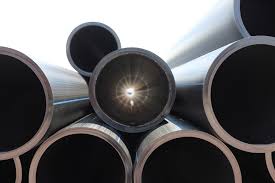Oct . 19, 2024 07:50 Back to list
HDPE Pipes for Safe Drinking Water Applications and Their Benefits
The Role of HDPE Pipe in Drinking Water Service
In today's world, ensuring a reliable and safe supply of drinking water is a paramount concern for municipalities and communities alike. One of the materials that has gained significant traction in the field of water distribution is High-Density Polyethylene (HDPE) piping. HDPE pipes have become increasingly popular due to their numerous advantages over traditional materials, making them an essential component in the infrastructure of drinking water service.
What is HDPE?
HDPE, or High-Density Polyethylene, is a thermoplastic polymer made from petroleum. It is known for its high strength-to-density ratio, which gives it excellent tensile strength, flexibility, and durability. This unique combination of properties makes HDPE an ideal choice for various applications, including packaging, plastic bottles, and indeed, piping systems for drinking water.
Advantages of HDPE Pipes
1. Corrosion Resistance One of the standout features of HDPE pipes is their exceptional resistance to corrosion. Unlike traditional metal pipes, which can corrode and compromise water quality over time, HDPE pipes remain stable and intact regardless of the water chemistry. This is crucial for maintaining the safety and potability of drinking water.
2. Durability HDPE pipes can last for decades, often exceeding a lifespan of 50 years or more with proper installation and maintenance. Their durability makes them an economically viable option over the long term, reducing the frequency and cost of replacements compared to conventional materials such as iron or PVC.
3. Flexibility The flexibility of HDPE pipes allows for easy installation in various terrains and conditions. This adaptability is particularly advantageous in uneven landscapes or during projects that require horizontal directional drilling. The ability to bend without breaking minimizes the need for joints, reducing potential leak points.
hdpe pipe for drinking water service

4. Low Maintenance HDPE pipes require minimal maintenance throughout their life cycle. Their smooth interior surface minimizes friction, which enhances flow rates and reduces energy costs associated with pumping water. Less maintenance not only saves money but also allows municipalities to allocate resources to other pressing needs.
5. Environmentally Friendly HDPE is 100% recyclable, which aligns with growing environmental consciousness and sustainability efforts. The ability to recycle HDPE pipes at the end of their life cycle contributes to a reduction in landfill waste and promotes a circular economy within the community.
Safety and Compliance
When it comes to drinking water applications, safety is non-negotiable. HDPE pipes meet stringent health and safety regulatory standards, including those set forth by the Environmental Protection Agency (EPA) and the American Water Works Association (AWWA). They do not leach harmful chemicals into the water, thus ensuring that the water quality remains intact and safe for consumers.
Installation and Cost Considerations
The installation of HDPE pipes is relatively straightforward and can be completed more quickly than traditional methods. Their lightweight nature reduces transportation costs, and since they require fewer joints, the risk of leaks during installation decreases. While the initial cost of HDPE piping may be higher than some alternatives, the long-term savings on maintenance, repairs, and replacement make it a financially attractive option.
Conclusion
In summary, HDPE pipes offer a robust solution for modern drinking water services. Their corrosion resistance, durability, flexibility, low maintenance requirements, and environmental benefits position them as a leading choice for municipalities and engineers striving for excellence in water infrastructure. As global water demands increase and the need for sustainable solutions becomes paramount, investing in HDPE pipe systems will likely play a critical role in enhancing the quality and reliability of drinking water supplies. By prioritizing HDPE for drinking water service, communities can ensure that their populations have access to safe, clean, and sustainable water resources for generations to come.
-
HDPE & PPR Pipe Elbows Durable, Corrosion-Resistant Solutions
NewsJun.01,2025
-
HDPE Tee Fittings 48-Inch HDPE Pipe Solutions & Cost Optimization
NewsJun.01,2025
-
Premium PVC Perforated Pipes for Efficient Drainage Trusted Factories
NewsMay.31,2025
-
Premium Perforated PVC Pipes for Drainage Solutions Trusted Factories & Manufacturers
NewsMay.31,2025
-
HDPE Electrofusion Fittings Durable, Leak-Proof Conduit Solutions
NewsMay.31,2025
-
HDPE Compression Fittings Leak-Proof, Corrosion-Resistant Solutions
NewsMay.31,2025

